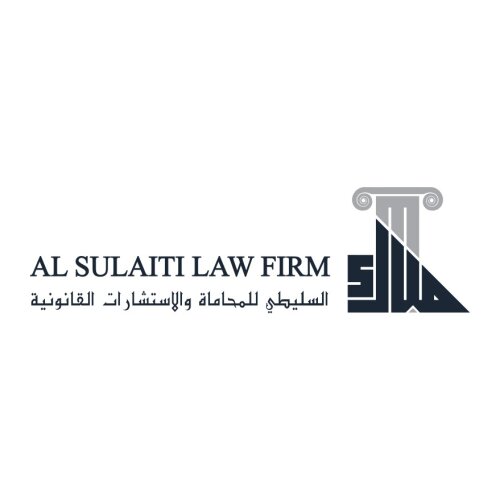Best Real Estate Lawyers in Qatar
Share your needs with us, get contacted by law firms.
Free. Takes 2 min.
Free Guide to Hiring a Real Estate Lawyer
Or refine your search by selecting a city:
List of the best lawyers in Qatar
Qatar Real Estate Legal Articles
Browse our 1 legal article about Real Estate in Qatar written by expert lawyers.
- Qatar Foreigners Buying Property Abroad: Legal Checklist
- Non-Qataris can own freehold or long-term use (up to 99 years) of property only in specific zones designated by Law No. 16 of 2018 and related Cabinet decisions. Property purchases must be registered with the Real Estate Registration and Documentation Department at the Ministry of Justice for ownership to be... Read more →
About Real Estate Law in Qatar
Real estate law in Qatar is a dynamic and robust legal framework designed to govern the buying, selling, leasing, and management of properties within the country. Qatar's real estate sector has experienced substantial growth, largely due to the nation’s booming economy and significant infrastructure development initiatives, including preparations for global events like the FIFA World Cup. As a result, there is a strong emphasis on regulatory compliance, property rights, and foreign ownership laws. The Qatari government has implemented a series of laws and regulations aimed at attracting foreign investments while ensuring stability and transparency in the real estate market.
Why You May Need a Lawyer
There are several situations where individuals or businesses may require legal assistance in the real estate sector in Qatar:
- Buying or Selling Property: To navigate contracts, ensure clear title transfers, and comply with all legal formalities.
- Leasing Agreements: Whether you are a landlord or a tenant, a lawyer can help draft and review lease agreements to protect your interests.
- Property Disputes: Handling disputes related to boundaries, ownership rights, or breaches of contract.
- Construction and Development: Ensuring compliance with zoning laws, building regulations, and obtaining necessary permits.
- Foreign Investments: Understanding restrictions and opportunities for foreign nationals investing in Qatari real estate.
Local Laws Overview
Qatar's real estate laws are governed by a combination of civil codes and specific regulations that impact property transactions:
- Foreign Ownership: Foreigners can purchase properties in designated areas, such as The Pearl-Qatar, West Bay Lagoon, and Al Khor Resort. These laws are designed to encourage foreign investment while maintaining local property market stability.
- Lease Agreements: Governed by the Tenancy Law, leases must be registered, and both landlords and tenants have specific rights and obligations.
- Registration: It is mandatory to register all property transactions with the Real Estate Registration Department to ensure legality and protection of ownership rights.
- Zoning Laws: Define how different areas of land can be used, impacting construction and development processes.
Frequently Asked Questions
Can foreigners buy property in Qatar?
Yes, but only in designated areas such as The Pearl-Qatar and West Bay Lagoon.
Is it necessary to register a lease agreement?
Yes, all lease agreements must be registered according to Qatari law to be considered legally binding.
What are the common fees associated with buying property?
Common fees include registration fees, real estate agent fees, and potential legal fees for due diligence and contract review.
How can I resolve a property dispute?
Property disputes can be resolved through negotiation, mediation, or legal action, depending on the complexity of the issue.
What should I consider when entering a lease agreement?
Ensure clarity on rent terms, duration, maintenance responsibilities, and any penalties for early termination.
Do I need a lawyer to buy property in Qatar?
While not mandatory, hiring a lawyer can help ensure compliance and protect your interests throughout the transaction.
What taxes are applicable to real estate transactions?
Currently, Qatar does not impose VAT or similar taxes on real estate transactions, but registration fees apply.
What is the role of a real estate agent?
Real estate agents assist with property searches, negotiations, and paperwork, often working closely with legal professionals.
Are there specific laws for commercial properties?
Yes, commercial properties may fall under different regulations, particularly regarding zoning and usage permissions.
How long does it take to complete a property transaction?
The timeline can vary, but typically it takes a few weeks to complete all formalities and registrations.
Additional Resources
Individuals seeking further assistance on real estate matters in Qatar may find these resources useful:
- Ministry of Justice - Real Estate Registration Department
- Qatar Chamber of Commerce for business-related inquiries
- Local real estate agencies familiar with Qatari law and market dynamics
- Online legal portals offering advisory services
Next Steps
If you require legal assistance in real estate in Qatar, consider taking the following steps:
- Research and Reach Out: Contact local law firms specializing in real estate to discuss your needs.
- Consultation: Arrange for a legal consultation to evaluate your situation and understand your rights and obligations.
- Documentation: Gather all necessary documents related to your property or transaction for review by your lawyer.
- Retain Legal Services: If necessary, retain a lawyer to assist with drafting contracts, negotiations, or representing you in disputes.
Proceeding with a clear understanding of Qatari real estate law and with competent legal assistance can protect your investments and interests.
Lawzana helps you find the best lawyers and law firms in Qatar through a curated and pre-screened list of qualified legal professionals. Our platform offers rankings and detailed profiles of attorneys and law firms, allowing you to compare based on practice areas, including Real Estate, experience, and client feedback.
Each profile includes a description of the firm's areas of practice, client reviews, team members and partners, year of establishment, spoken languages, office locations, contact information, social media presence, and any published articles or resources. Most firms on our platform speak English and are experienced in both local and international legal matters.
Get a quote from top-rated law firms in Qatar — quickly, securely, and without unnecessary hassle.
Disclaimer:
The information provided on this page is for general informational purposes only and does not constitute legal advice. While we strive to ensure the accuracy and relevance of the content, legal information may change over time, and interpretations of the law can vary. You should always consult with a qualified legal professional for advice specific to your situation.
We disclaim all liability for actions taken or not taken based on the content of this page. If you believe any information is incorrect or outdated, please contact us, and we will review and update it where appropriate.
Browse real estate law firms by service in Qatar
Qatar Attorneys in related practice areas.
Browse real estate law firms by city in Qatar
Refine your search by selecting a city.

















